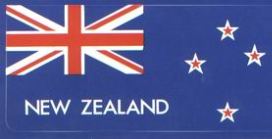New Zealanders told honour war dead by staying away from Gallipoli
 Wellington - The head of New Zealand's main returned servicemen's organization urged young people to stay away from annual World War I commemorations in Turkey because they are damaging the environment and disrespecting the dead, a newspaper reported on Sunday.
Wellington - The head of New Zealand's main returned servicemen's organization urged young people to stay away from annual World War I commemorations in Turkey because they are damaging the environment and disrespecting the dead, a newspaper reported on Sunday.
Tens of thousands of young New Zealanders and Australians go to the Gallipoli peninsula every year to mark the anniversary of their ancestors' disastrous landing on April 25, 1915, to fight Turkish troops.
"They sleep under the stars, and often drink heavily as they await the dawn prayer services," Robin Klitscher, president of the Returned and Services' Association (RSA), was quoted as saying by the Herald on Sunday. They would better pay their respects by staying away, he said.
Klitscher said the huge crowds were an imposition on Turkish authorities, and showing restraint would be "more in keeping with honouring the Anzacs who lie there forever."
He said the visitors should remember that Gallipoli was a place of remembrance for Turkey as well.
"I know of no other instance in the world where a government has allowed peoples who have once tried to invade to come back and establish huge memorials and conduct an annual ceremony in their memory," Klitscher said. "When you think about it, that's a very generous thing to do."
He suggested that New Zealanders wanting to pay their respects to the war dead should stagger their visits throughout the year.
The paper said a new edition of the Lonely Plant travel guide also recommended New Zealanders and Australians stay away on Anzac Day to save the peninsula from environmental destruction.
Writer Steve Fallon said that supposed improvements, such as carparks and road-widening schemes, had caused considerable damage to some areas, "most shockingly" at Anzac Cove, where the first wave of New Zealand and Australian troops landed.
"Perhaps the only way to save Gallipoli is to do the 'unpatriotic' thing and stay away, at least on April 25," he wrote.
New Zealanders and Australians combined to form the Australian and New Zealand Army Corps (ANZAC) for the assault, which was designed to give the British navy command of the Turkish-held Dardanelles.
New Zealand lost more than 930 men in the first three days of the assault and more than 2,700 died and 4,752 were injured, some fatally, before they withdrew eight months later.
April 25, now known as Anzac Day, is a public holiday in New Zealand and Australia and the most important day of public remembrance for those who died in both world wars and other conflicts. (dpa)